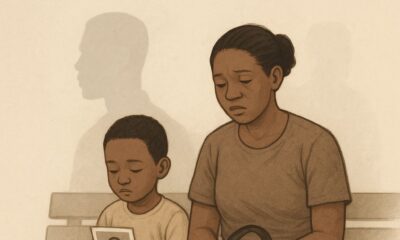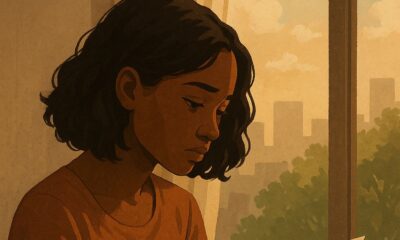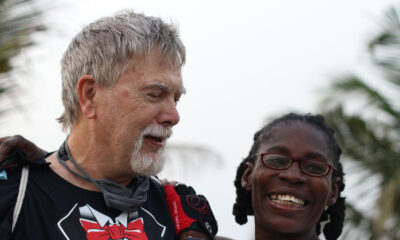Features
Bumps, Babies & Motherhood: We’re Following the Journey of 3 Mothers in Their Twenties
Nothing prepared me for the horror…
Adedotun Soyemi was 24 when she got pregnant. She remembers going to do a blood test and seeing positive slammed on the paper. “I didn’t even know what to think. I texted my husband and said, ‘It’s positive o.’ He was just saying ‘wow wow wow’. In my head, I was like, which one is wow? Oga, baby is coming.” Adedotun wasn’t prepared; it was 2 months after her wedding and she and her husband had planned to enjoy their marriage for a while before they popped babies. But it was here now. And it was real.
As women transition from childhood into adolescence and then adulthood, birthing and nurturing new humans becomes a matter of time. Many women know about it, they want it, they imagine it, yet it looks like something that’d happen somewhere in the future. So the idea that a whole human is growing inside of you right now can feel surreal, particularly when it catches you unawares. “I remember looking at the test result and thinking, ‘Wait, so there’s a baby inside me.’ I was touching my tummy, hoping to feel something different. Everything was just flat. I think I cried a little. Somehow, the responsibility and the joy hit me at once; I was going to be somebody’s mummy.”
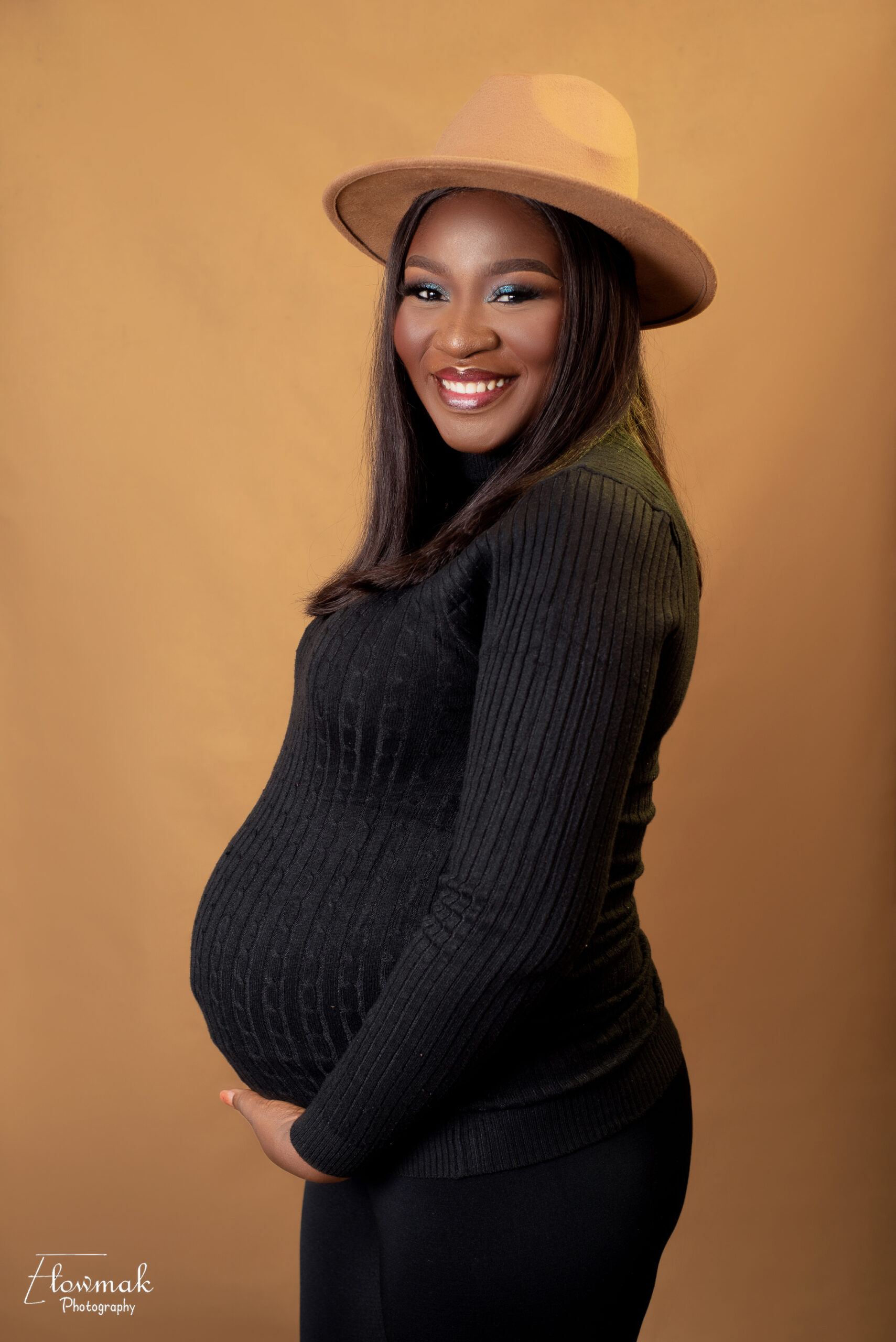
Adedotun Soyemi
“This is definitely not how I planned my early 20s” was Jennifer Amadi‘s reaction when she found out she was pregnant at 21 – three months into her marriage. But, well, she wasn’t planning to get married either. “I had been keeping my distance from men because I felt like I needed to focus more on school, nurture my skills, and figure out what I wanted to do with my life. But all that changed when I met this amazing guy who swept me off my feet. We ended up getting married a year later. After our wedding, I wasn’t ready to start having kids immediately and my husband and I had agreed that we’d wait for six months to start thinking about it. But three months after our wedding, I found out that I was pregnant.”
3 mothers. Same stories. Different experiences
“My first pregnancy was a handful, combining school work with pregnancy ” – Akuoma.
“My first pregnancy journey was definitely horrible. Nothing prepared me for the horror I went through during those nine months of gestation” – Jennifer
“My first pregnancy was almost a breeze except for the first-trimester drama. I enjoyed it” – Adedotun
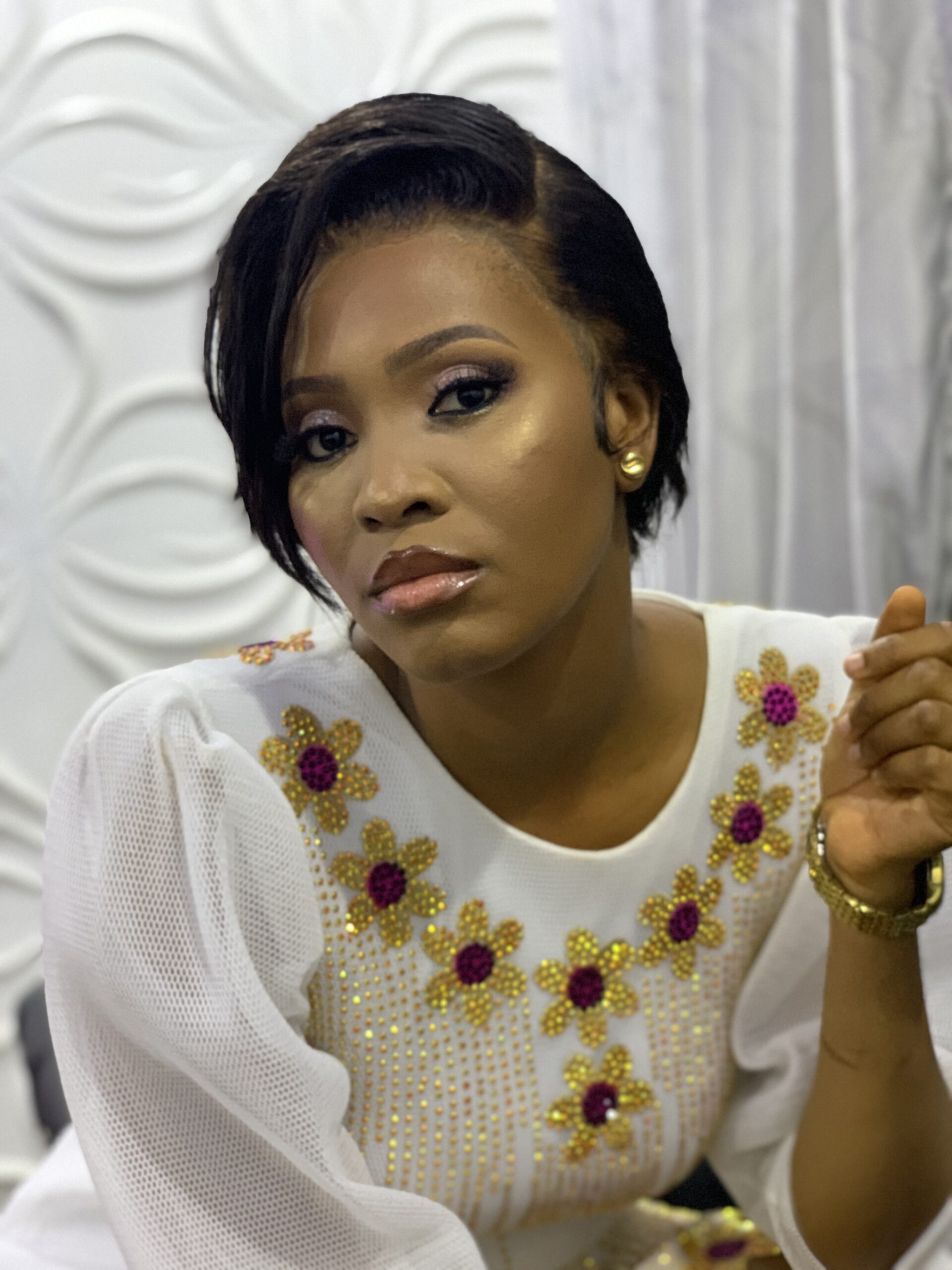
Akuoma Onyeriri
Akuoma Onyeriri made the decision to have children and build a family in her 20s, “I definitely knew what I wanted in life.” Still, when she got pregnant at 23, she was “mentally clueless about pregnancy and motherhood.” She describes her first pregnancy as a handful. “I was supposed to be done with pharmacy school, but COVID-19 happened and we were delayed a bit. I was pregnant and rounding off my final year project. With all the vomiting, it wasn’t a pleasant experience! 11 months after having her first child, Akuoma found out she was pregnant again, this time around, it was “A very different experience; it was smooth.”
When Jennifer said her first pregnancy was horrible, she meant it, “I was always sick and spent nights at the hospital. I vomited unprovoked, spat, and occasionally fainted, and there was one time that I almost died because I ate a cucumber.
The day I gave birth to my first child wasn’t the most exciting day for me. I knew I was supposed to be happy but I couldn’t be; I was dealing with PTSD from labour. I was also in so much pain from the episiotomy that I had; I couldn’t sit, stand, or even lay on the bed properly because the stitches hurt like hell. My episiotomy hurt for like four weeks and more, my doctor said it was because part of my uterus tore a little when my baby was coming out so they also had to stitch it; I didn’t know that could happen too. I didn’t swoon over my baby or smother her with kisses like I saw other moms do online. With this chaotic pregnancy (no exaggerations, it was chaotic), I still managed to go to school and kept my grades up.”
Unlike Jennifer, Dotun’s pregnancy didn’t give her a near-death experience, “I was throwing up, lost my appetite, and lost weight. Nausea made eating and drinking so uncomfortable. There was a day I was faint, when I got to the hospital, the doctor said I was dehydrated. He then asked me what other discomfort I was feeling, and I said nothing. He asked if I was spitting, and I said “God forbid”. He smiled and said, “With pregnancy, never say never.” Two weeks later, I realised I needed to always spit, and I did until I gave birth. There was also this time I woke up after my husband used perfume, and I asked why he would choose such a terrible fragrance. He said, ‘Babe this is our perfume o.’ It didn’t smell like the perfume I had always loved.”

Adedotun Soyemi and family
The Motherhood Journey
A tired body but a heart full of love
For women in their 20s, motherhood comes with a whirlwind of uncertainties and fears; various questions arise, ranging from concerns about their ability to provide for a child’s needs to anxieties about their personal growth being hindered.
“I am doing this in my twenties, and that is what makes it challenging,” Dotun says, “I am growing a career and business, learning to be a better wife, and maintaining other relationships. It’s a lot to handle. I have made sacrifices, let go of buying hair, some clothes, and so on, because I am building and my children need stuff. But I prayed for this; I’ve always wanted to be a mum, and this is a phase. So I am thankful.”
Navigating school and family was tough for Jennifer, “I had to learn on the job. With my first baby, I didn’t know that it was almost normal for babies to cry all night for the first three months or what colic was, or that I will be sleep deprived for the first six months. At some point, I was so frustrated that I started taking it out on my husband because I was going crazy handling a newborn, school, and taking care of the house. We eventually had to put her in a good creche nearby so we could drop her off, then I’d go to school and pick her up on my way back. With my second baby, it was a lot easier, I was done with school and NYSC, was more relaxed, and worked at my own pace. Almost five years later, my two girls are my world, I love them with everything in me.”
None of these mothers have any regrets but Jennifer has a wish, “I wish I had learned more about the psychological, emotional, and physical changes that come with pregnancy and motherhood.”

Akuoma Onyeriri and her baby
Motherhood comes with its joys and these mothers are experiencing that too. “Being a young mom has pushed me to take on my goals and even discover myself. I never knew how bold and eloquent I was until I became a mom,” Akuoma says.
“It has helped me stretch, reset my priorities, grow, and become more courageous. I have made bold and unconventional decisions about how I want to work without feeling guilty because of my children, and this courage has spread into other aspects of my life,” Adedotun says.
“Women are having identity crises because of marriage, motherhood, and pregnancy taking over their whole being, and they are left wondering whether that is all they came to this life to do. It has been hard figuring out my life and career with kids, but I get to do it in my own way. I don’t have to stick to a particular narrative about raising kids, I constantly discover new ways to relate to my kids that make them feel seen and heard,” Jennifer says.
What a day in the life of a mother looks like
Akuoma says every young person who intends to step into the journey of motherhood in their 20s needs to be fully prepared, but she also says, “Nothing prepares you for motherhood. It’s better experienced than explained. No two motherhood journeys are the same.
On weekdays, I wake up at 5 a.m. and prepare breakfast. I pack my toddler’s lunch box and my husband takes her to school. Occasionally, I do school runs. At 8 am, I bathe my two-month-old baby, feed her and put her to sleep. Afterwards, I do a few house chores, take a shower and rest a little while nursing my baby at intervals. Between 11 a.m. to 3 p.m., I catch up on my online course; I am a pharmacist but I have a passion for children’s health and nutrition. I also do a few book reviews. Between 3 – 4 p.m., I prepare dinner. My toddler gets back from school, I give her fruits, a bit of screen time, bathe and put her to sleep by 8 p.m. Between 8 and 10 p.m., I take a shower and relax while still nursing my two-month-old. I catch up with my husband and call it a day.”
Dotun has one thing in common with Akuoma: a present husband. “We have two children, and my husband takes his responsibilities seriously. When school is in session, I plan and prep meals for the next day the night before, my husband handles the rest and I am left with our baby.
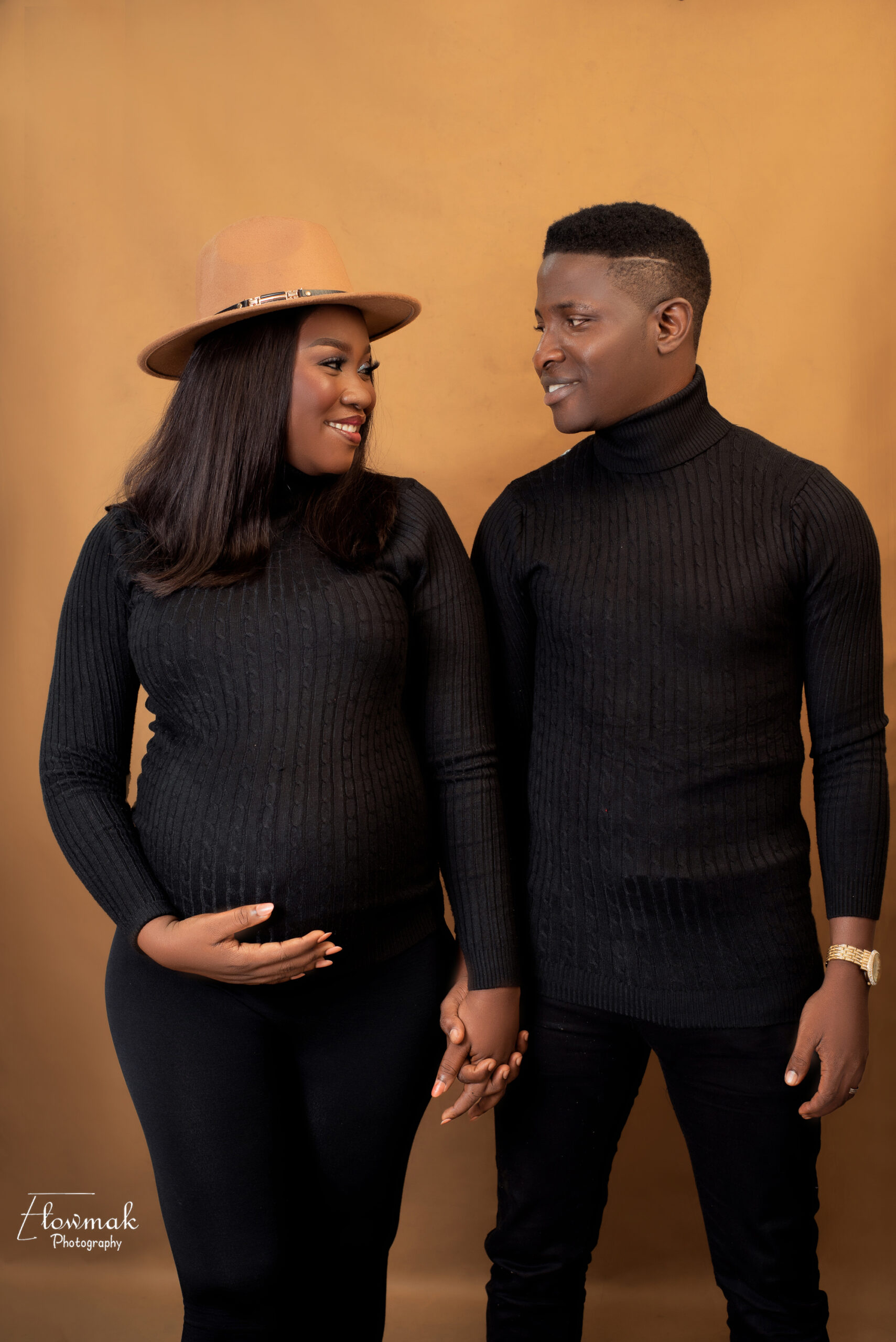
Adedotun and Tolulope Soyemi
I work from home, so I have done a ton of meetings with my daughter in hand. I do most of my strategy work when she’s sleeping during the day or at night. When I have meetings and need to turn on my camera, she’s usually with her dad. We plan our work hours to make sure that if one person has to be 100% focused on work, the other person is available.”
Being a Gen Z mom is so cool, Jennifer says, “I think we have the most remarkable multitasking skills, I didn’t know that I could manage work, my side hustle, motherhood, and marriage together. I outsourced where I felt I needed help the most. For example, to help me with the kids, we hired a live-out nanny. She picks up the kids from school and stays with them until one of us gets home, then she leaves. The weekends are usually our reset days; we spend more time with the kids and do all house chores together. We allow them to stay up a little late during the weekends, we play some games and dance a lot too. During school nights, their bedtime is 8 p.m. and on weekends 9 – 9:30 pm. I’m forever grateful for my strong support system: my husband, mom, mother-in-law, and closest friends.”
The Triumphs of Motherhood
“I was really excited after I had my second child, Few days after I got back from the hospital, my first daughter walked up to her baby sister, smiled and hugged her. Oh, I was happy! I knew I had given her a sister and a friend” – Akuoma
“One of the most important things we prioritise in raising our kids is teaching them to love themselves and to give love. I think I’m so big on this because growing up, I didn’t really love myself” – Jennifer
“I chose the gentle parenting method which means I have committed to not yelling and all the regular ways of discipline. It’s not easy because toddlers will test you. I decided to do this because if there’s a better way to discipline, I want to learn and be better at it” – Adedotun
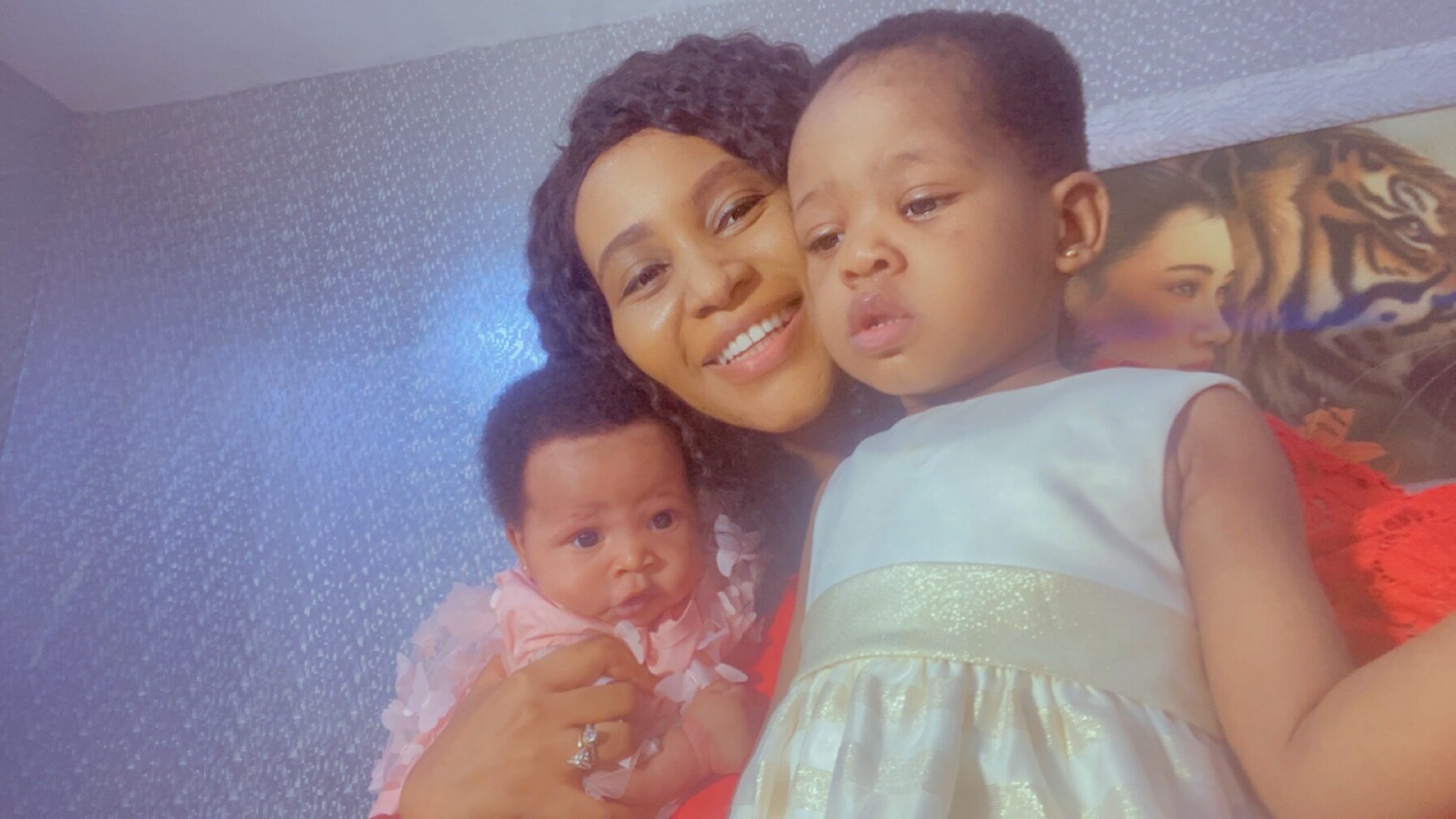
Akuoma Onyeriri and her children
These mothers are working on becoming better for their kids – and they are winning. “Motherhood changed me,” Akuoma says. “Prior to being a mom, I used to cry a lot but now I am very much in control of my emotions. I’m more selfless, more accommodating, and organised.”
Jennifer is teaching her children to speak up, “…Growing up I didn’t really love myself and I felt like my parents didn’t know better, but I have the opportunity to do right by my children and I intend to do so. We learn new ways to help boost their self-esteem, and build their confidence in themselves by giving them the opportunity to always express themselves and to speak up even in uncomfortable situations.”
If you are a mama, these mothers are also cheering you on. Akuoma says that “Your journey is unique and you’re the best mom for your child.” Jennifer says, “Society should be kinder to all moms, we don’t have it all figured out, and we deserve a lot of credit.” Adedotun says, “Work on those things that bring you fulfilment. Your children will thank you and be forever proud of you. I am always rooting for you, mama; you’re doing a great job!”


